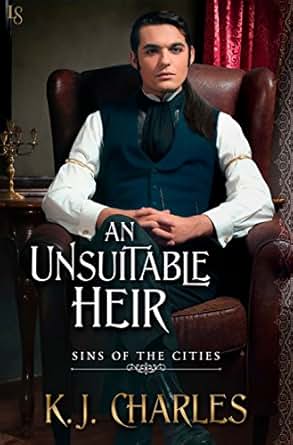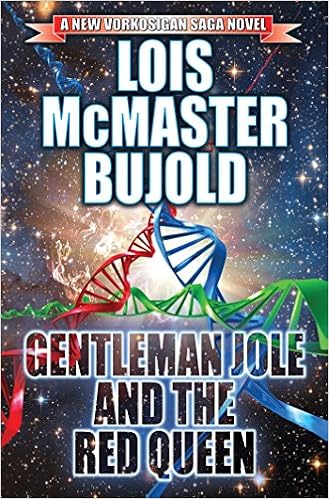"...How do I look?”The concluding volume of the 'Sins of the Cities' trilogy: see An Unseen Attraction and An Unnatural Vice for my reviews of the previous two novels. Also, this review may contain spoilers for the events of those novels.
Greta surveyed him. “Handsome and beautiful.” [loc 1525]
Pen and Greta, who perform a trapeze act as the famous Flying Starlings, are alarmed to discover that one Erasmus Potter is offering a reward for the whereabouts of 'Repentance and Regret Godfrey' -- the names their mother gave them. They thought they'd escaped the Potters' repressive 'rustic sect', but their nine years of freedom and success in London might be about to run out.
Mark Braglewicz has his own reasons for approaching Pen Starling: but he finds himself fascinated by Pen's looks and character, and the fluidity of Pen's identity. Pen is strong and broad-shouldered from all the trapeze work; he also likes to wear his hair long, paint his face and wear silks and frock coats. He's sick of people thinking his gender is an either/or: but Mark seems to understand.
But Mark knows something that Pen and Greta don't, and it's a dangerous secret to keep...
I spent a lot of this novel commiserating with Pen, because I couldn't see how the situation could end happily for anyone. In the final chapters, when the protagonists of all three novels are gathered at Crowmarsh, the ancestral home of Clem's family, the tension ratchets up and up. But, like clockwork -- like a trapeze act -- the pieces all fall into place.
One of the things I like most about this series is that each novel has different viewpoint characters. It's interesting to see them through one another's eyes. In An Unsuitable Heir, we have Mark's and Pen's perspectives on Justin Lazarus and on Clem, and Pen's initial impressions of the Jack and Knave regulars -- though Clem is already familiar to Pen and Greta as the 'Mysterious Stranger' who's a regular at their shows. Characters who made only brief appearances in the previous novels assume more significant roles; and the murderer known (to Mark and Nathaniel, at least) as the Fogman is more of a threat than ever.
And it's good to have a female character who's the equal (socially and in terms of plot) of the male characters. Greta, Pen's twin (she's described as looking more like Pen than he does) is more pragmatic and practically-minded than her twin, and is fiercely protective of him. She's aware that they can't be trapeze artists for the rest of their lives: she has a plan, and it doesn't involve Pen compromising his identity.
Pen's genderqueerness feels wholly credible for Victorian England. He (the pronoun Pen uses: “I’m not a she and I’m not an it, and at least 'he' doesn’t cause trouble") sometimes feels masculine, sometimes feminine. Circus life gives him considerable freedom in matters of dress and behaviour: on the other hand, he's stood trial for unnatural offences before, and he's never been to a safe space like the Jack where queer people can be themselves in public.
Pen's hair -- waist-length, chestnut-coloured, the subject of Mark's fantasies -- becomes a symbol of his refusal to fit in with society's expectations. "He would have to cut his hair if there was a trial. ... He’d have to cut away and ignore every part of himself that didn’t fit the box, and he felt the nauseating lurch of a dizzy spell at the thought." Mark -- son of a Polish anarchist -- points out how differently Pen's behaviour would be treated if he were a member of the aristocracy: "they are foibles, not offences, when the man doing ’em pays the wages. One law for the rich, another for the poor.” [loc 1089].
I haven't said much about Mark: Mark is delightful. Early in the book, Phyllis (the landlady at the Jack) tells him that he's 'penny-plain' while Pen is 'tuppence-coloured': and that's true, but not the whole truth. Mark loathes being termed 'incapable' or 'cripple' despite being born with only one arm -- a very visible difference. He's also competent, bisexual, protective, considerate, and has a slanted humour that meshes well with Pen's. And he's a very credible Sarf London bloke.
This is a romance with multiple layers: a murder mystery, a Gothic tale of aristocratic scandal, an exploration of gender and sexuality, a convincing romance, and a homage to Victorian literature. I applaud K J Charles -- and am very happy to have scored a free ARC from NetGalley, in exchange for this honest and appreciative review.





